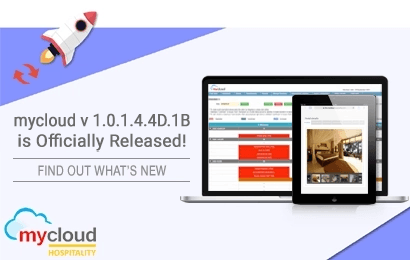Ever since we entered the age of digital technology, the business landscape has been subjected to many changes. Internet technology has affected many aspects of the hotel industry and improved it quite substantially. Yet again, we are witnessing another big change that will impact many hotel chains around the word – the introduction of GDPR compliance.
Even though this new regulation might require more work from hotels, they will be able to provide a better service to their customers and protect their rights more effectively. Many people in the industry have voiced their concerns about the regulations and consider it to be just “more hassle” for all hotels and their guests, but in reality, hotels that take this issue seriously can get lots of benefits.
There are already GDPR compliant hotel software solutions specifically designed for this purpose and they can make the process more structured and efficient.
Improved cybersecurity
All hotels want to improve their cybersecurity, as breaches can cost a lot and customer data that gets stolen can result in major lawsuits and reputation loss.
With GDPR compliance, a hotel can create better workflows that will help protect all data including customer information. This regulation obligates all hotels to create strategies and adopt technical and administrative measures that will protect the personal data of all EU customers.
To achieve this, hotels will also have to ensure that the data travels and gets shared safely. This means that they will pay attention to their IT systems and naturally try to make them safer to protect the data.
This means a better IT infrastructure, data monitoring, and protected workflows. This is how hotels will better analyze their IT assets and online processes, learning about potential vulnerabilities and making an effort to fix them.
Increased customer loyalty
GDPR for hotels can help build trust with customers and turn them into loyal guests that come back year after year. To ensure GDPR compliance, an organization will have to get consent from every guest to use their data. Simply put, hotels will have to ask for the permission of their guests to use their data and explain in detail how their data will be used.
Given the fact that more and more customers are suspicious about how businesses use their information, this increased transparency will make them feel more confident about a hotel. In the hospitality industry, it’s essential to provide a great customer experience and make your services as pleasant as possible while informing guests promptly about everything.
This will further reinforce these incentives and your brand will be able to build even more trust. GDPR for hotels is a great opportunity to show that you don’t want to do anything to your customers or with their information until they’ve given you their approval.
Improved data maintenance
By ensuring that your hotel is GDPR compliant, you will inevitably reduce your costs, as a lot of the data you have stored will no longer be relevant for your hotel and you will have to dispose of it. This means that you will have less data to manage and use. On top of that, you will only store data which has a purpose and can benefit your business.
There is no need for maintaining large volumes of data which is mostly unusable, leading to a great reduction in running and maintenance costs. A GDPR compliant hotel software can streamline all of the data on a single platform and help you manage it properly without wasting time or money.
The benefits of GDPR compliant software lie in the fact that it can be used for getting approval from customers to use their data. It also helps quickly transfer the data into relevant marketing tools formatted in the same way.
This is how a hotel can quickly recognize engaged customers with whom they can deepend relationships and eventually turn them into loyal customers.
Only authorized staff will be able to see customer data
GDPR compliance will make hotels more organized. It will also make them implement better security measures to address data security concerns. This way they will become more disciplined when managing customer data. Hotels will have to automate some of their operations and create a strict ecosystem where everyone knows what their limits are.
In this process, organizations will also have to adopt GDPR compliant hotel software solutions that will be managed only by certain people. This means that only a few people within the organization will have access to customer data and have the authority to do something with it. At the same time, they will be the ones who have the knowledge and training on how and when to use customer data.
This will greatly reduce liability and improve traceability when it comes to data management. If something goes wrong, hotels will also be more accountable, as they will be able to pinpoint whose fault it was and who has to take responsibility for any misuse.
These are just some of the benefits that GDPR compliance can bring for hotels. There’s a lot of potential for even more uses in the future and time will tell how much brands will be able to benefit from this. One thing is certain, better software solutions and technology improvements will create centralized data systems that will have a modern approach to doing business










